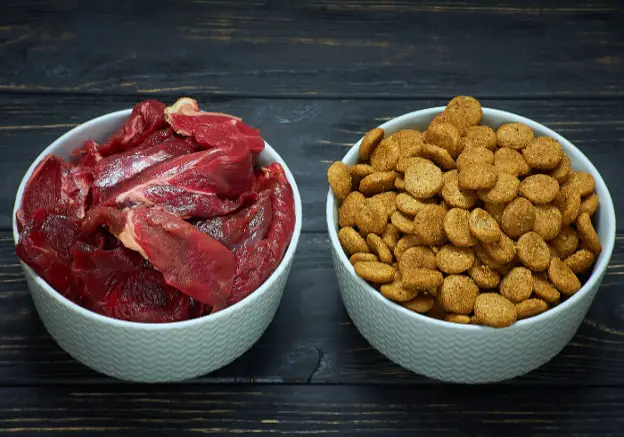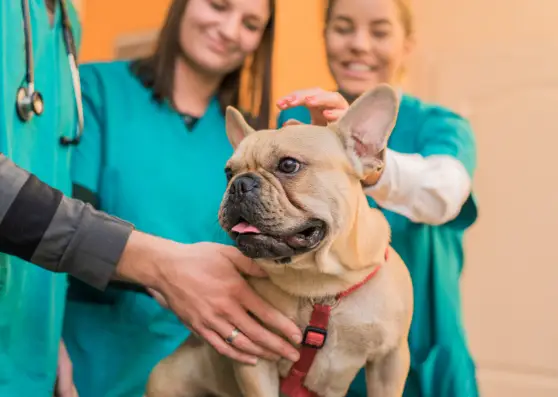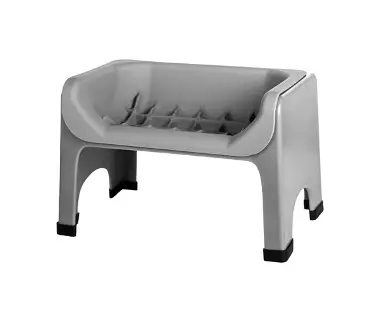Unraveling the Mystery Behind Vomiting and Regurgitation
As a French Bulldog owner, you might often wonder, “Why does my frenchie vomit?” It’s a question that concerns many, but sometimes, the issue isn’t vomiting at all – it’s regurgitation. In Frenchies, regurgitation can be a result of their unique brachycephalic structure, or conditions like hiatal hernias. This blog explores the reasons behind both vomiting and regurgitation in French Bulldogs, and delves into the crucial role of specialized veterinary care for these conditions.
Vomiting vs. Regurgitation – Understanding the Difference in French Bulldogs
- Vomiting: This involves active abdominal contractions and is a forceful ejection of the stomach’s contents. It’s often accompanied by nausea and can include bile along with the digested food. Vomiting can be triggered by dietary indiscretions, infections, or systemic health issues.
- Regurgitation: Unlike vomiting, regurgitation is a passive process where undigested food is expelled from the esophagus and typically occurs soon after eating. In French Bulldogs, regurgitation is often due to their brachycephalic (short-headed) structure, which can impact the normal function of the esophagus.
Understanding the top health concerns in French Bulldogs can help you prevent conditions that might lead to vomiting or regurgitation.
Here are Common Causes of Vomiting and Regurgitation in French Bulldogs

- Dietary Issues: French Bulldogs may experience gastric distress due to overeating, eating too quickly, or consuming inappropriate foods. Eating too fast can lead to bloating, while unsuitable foods can cause upset stomachs and vomiting.
- Texture Issues: French Bulldogs react much better to fresh food diets and home cooking. The texture and indigestibility of kibble can cause regurgitation.
- Sensitivity to Food: Food allergies or sensitivities are common in Frenchies. They might react to certain proteins such as chicken and turkey, grains, or additives, leading to regurgitation, diarrhea, or skin problems.
- Stress and Anxiety: Emotional distress can lead to vomiting. Changes in the environment, loud noises, or separation anxiety are common triggers in sensitive breeds like French Bulldogs.
- Gastrointestinal Obstructions: Their curiosity can lead French Bulldogs to ingest objects that cause blockages in their digestive system, which can be a serious, life-threatening issue. Dogs with obstruction will not be able to keep their food or water down, some of them might also develop bloody diarrhea.
- Health Conditions: Conditions such as pancreatitis, liver disease, kidney problems, or infections can cause vomiting. Pancreatitis is of particular concern in French Bulldogs due to their propensity for high-fat diets.
- Acid Reflux: Just like in humans, French Bulldogs can suffer from gastroesophageal reflux or acid reflux. This condition occurs when stomach acid flows back into the esophagus, leading to discomfort and vomiting, especially after meals.
- Gastric Emptying Disorders: Some French Bulldogs may experience delayed gastric emptying, where the stomach takes longer to pass food into the small intestine. This can cause symptoms like vomiting, bloating, and abdominal discomfort.
Hiatal Hernia and Brachycephalic Obstruction Syndrome (BOAS) in French Bulldogs (also a common cause of vomiting)
- Hiatal Hernia Explained: A hiatal hernia occurs when part of the stomach pushes up into the chest cavity, which is common in brachycephalic breeds. This condition can exacerbate the issue of regurgitation, causing discomfort and potential health risks for your Frenchie.
- Understanding BOAS: Brachycephalic Obstruction Syndrome is a group of respiratory and gastrointestinal problems unique to brachycephalic breeds. It can lead to chronic regurgitation, breathing difficulties, and other health issues.
- Surgical Solutions for BOAS: Surgeries such as widening the nostrils, trimming the elongated soft palate, and addressing enlarged tonsils can dramatically improve the quality of life for French Bulldogs that frequently vomit/regurgitate.
When is it important to see the Vet?
It’s important to consult a veterinarian if your Frenchie is vomiting frequently or shows other signs of distress. This is especially crucial if the vomiting is accompanied by symptoms like lethargy, loss of appetite, diarrhea, or signs of pain.
The Importance of Specialist Care for French Bulldogs

- Regular Vets vs. Specialists: While general veterinarians are skilled in a wide range of pet health issues, the unique challenges of brachycephalic breeds like French Bulldogs often require the expertise of a specialist.
- Seeking a Soft Tissue Specialist: For conditions like hiatal hernias or BOAS, it’s crucial to consult a board-certified soft tissue specialist. They are also the most qualified to perform any necessary surgeries.
Preventative Measures for Regurtiation and Home Care
- Diet Management: To prevent dietary issues and Frenchie vomiting, feed your pup a balanced diet appropriate for their age, size, and activity level. Consider slow elevated feeder bowls to prevent eating too quickly.
- Stress Reduction: Create a calm and stable environment for your Frenchie. Regular exercise, consistent routines, and providing a safe space can help manage anxiety.
- Regular Health Check-ups: Regular veterinary visits are crucial for early detection and prevention of health issues.
Here’s a short list of our favorite products that help with vomiting.

- Fluff Through Slow Elevated Feeder: Great for French Bulldogs with regurgitation issues.
- Elevated Slanted Water Bowl: Helps prevent vomiting after drinking too fast.
- GastroElm Digestive Support: Soothes the stomach and the surrounding tissues, great for Frenchies that suffer from reflux.
Final Thoughts:
Understanding the difference between vomiting and regurgitation in your French Bulldog is key to providing the right care. Proper diagnosis and specialized treatment can make a significant difference in your Frenchie’s health and quality of life.



